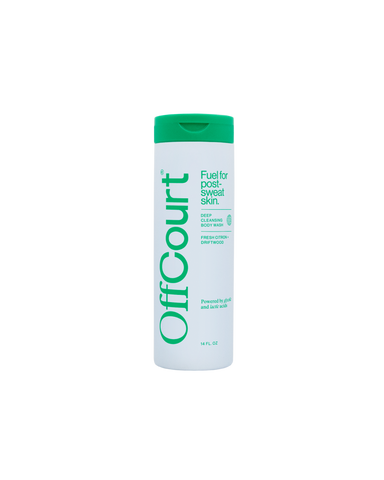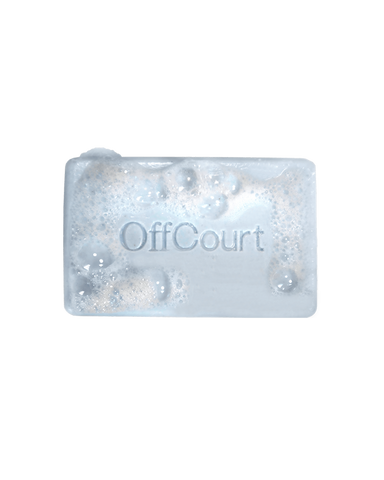Your Guide to Common Types of Chemical Exfoliants for Body Skin
Rough, bumpy, and dull-looking skin is usually the result of one main problem: too many dead skin cells. Your skin is a self-functioning organ that sheds and creates new cells to stay intact, but this process isn’t foolproof.
Sometimes, it’s necessary to chemically exfoliate the skin on your body to get rid of the old and bring in the new. Below, we’ll explore common types of chemical exfoliants for body skin that you might encounter so you can choose the right one for you.
The Nitty-Gritty of Exfoliation
Healthy skin cells regenerate (that is, die and produce new cells) each month. But some factors – including sun damage, aging, and even genetics – can slow things down. When that happens, dead skin can pile up in pores, potentially leading to clogs and body acne.
Exfoliation is one solution that can help keep your skin in top shape. When done properly, exfoliation can not only remove dead skin cells but also lead to a smoother complexion and fade acne scars.
There are two main options for exfoliation: physical and chemical. Due to their noticeable effects and relatively tolerable nature, chemical exfoliants are rising as a top choice.
They work by breaking down the bonds that hold skin cells together, thus releasing the top layer of cells before they cause issues. Exfoliants can also get deep into pores and remove build-up in ways that traditional cleansing can’t.
Physical exfoliant works by physically removing dead skin resting on your skin. This type of exfoliation doesn’t usually penetrate the skin as deeply as chemical exfoliation but can still work for some skin types and concerns.
Common Types of Chemical Exfoliants
Most chemical exfoliants fall into one of two categories: alpha hydroxy acids (AHAs) and beta hydroxy acids (BHAs). The former usually comes from fruits and can easily dissolve into water. They’re known for improving the skin’s appearance and gently exfoliating without causing irritation.
BHAs focus on deeply cleaning out pores and working on the skin's surface. They’re best for unclogging pores and reducing excess oil production.
A third class, polyhydroxy acids (PHAs), works similarly to AHAs. But because PHA molecules are larger, they don’t penetrate as deeply into the skin. These options might be gentle on the skin, but they may not be effective enough to give you the results you want. They’re best for highly sensitive skin that can’t tolerate other exfoliants.
With that said, let’s look at some specific examples of chemical exfoliants for body skin that might work for you.
Glycolic Acid
As an AHA, glycolic acid is gentle enough to be tolerable by all skin types. It helps promote moisturized, even-toned skin. Because it’s not especially drying or irritating, glycolic acid is ideal for dry and sensitive skin.
Lactic Acid
Lactic acid is another type of AHA that promotes hydrated and healthy skin. It’s an especially good option for brightening the skin by fading existing acne scars and lowering signs of wrinkles.
OffCourt’s Deep Cleansing Body Wash is formulated with both glycolic and lactic acids for a deeply exfoliating and hydrating cleansing experience. These acids are used in the formula in levels that would be safe for sensitive skin and for daily use. Our Body Wash’s amazing fragrance blooms in the shower to create a refreshing, premium scent.

Deep Cleansing Body Wash - Fresh Citron + Driftwood
Salicylic Acid
As arguably the most popular BHA out there, salicylic acid is a superhero when it comes to combating oil-clogged pores and acne. It can dissolve into oil, allowing it to deeply penetrate the pores and clear out extra sebum.
You can use salicylic acid to chemically exfoliate skin on your body, but it may be too harsh for regular use. Always use products with a lower concentration to avoid irritation. Stronger exfoliants like this may be best used around once a week until you learn how your body tolerates them.
Other Exfoliants for Body: Physical Options
Chemical exfoliation doesn’t work for everyone, and some people who do chemically exfoliate may still want to add other options to their routine, especially on rough skin. That’s where physical exfoliation steps in.
As mentioned, physical exfoliation relies on physically removing dead skin cells that rest on the skin’s surface. Some types of physical exfoliation can be too irritating for some skin types – namely dry, sensitive, and acne-prone skin – and could worsen skin concerns.
However, physical exfoliation may be better suited to your body than your face; the skin on your body is generally tougher and thicker. You may also need some extra help fully exfoliating body skin, especially if you’re active, you sweat a lot, and if you have rough skin on elbows or knees.
It’s important to note that it may be best to avoid mixing exfoliation types. If you’ve recently chemically exfoliated, you probably don’t need to go in with a scrub, and vice versa. Give your skin a break in between exfoliation sessions to avoid causing damage or over-exfoliating.
But, when it comes time to get to work, you can use options like those below to get started.
Exfoliating Brushes or Sponges
A small buffing brush or a sponge with a slightly rough texture can scrub away dead skin cells no matter which product(s) you use. Their bristles or surface grip cells and remove them from the skin’s surface, leaving behind a softer, smoother complexion.
Body Scrubs
Exfoliating scrubs work much like a brush or sponge; they’re made with gritty ingredients that create a rough texture that’s ideal for removing dead skin. OffCourt’s Exfoliating Body Soap features a medium-grit formula that purges your skin of extra cells and dirt without stripping it of its natural oils. Nourishing ingredients like shea butter follow up to soothe the skin and deeply hydrate it. It’s the perfect way to bring mechanical exfoliation into your routine!

Exfoliating Body Soap - Fresh Citron + Driftwood
Microdermabrasion
Completed by professionals, this treatment uses tiny exfoliating crystals to remove dead skin cells quickly and effectively. Dermarollers are a similar option; these products use small needles to puncture upper skin layers and stimulate new skin cell production.
Final Thoughts
No matter which type of exfoliant you use, be sure to exfoliate properly and safely by taking things slow and listening to your skin.
Chemical exfoliants offer a simple and reliable method to remove dead skin cells, but mechanical exfoliants can be a great option, too. It all depends on your skin type and goals.
Regardless of where you land, OffCourt is here with two body exfoliating products - physical exfoliant in Exfoliating Body Soap and chemical exfoliant body wash in Deep Cleansing Body Wash.
